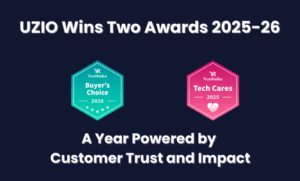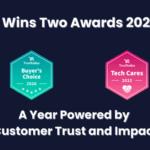
The Importance of Market Research in the Cannabis Industry
Quick links
-
Why Market Research is Crucial for Cannabis Businesses
-
Effective Market Research Strategies for Cannabis Users
-
Use Social Media for Market Research
-
Join Cannabis Communities
-
Host Focus Groups
-
Research Your Competitors
-
Check Your Sales Statistics
-
Analyze Your Website Analytics
-
Conclusion: Leveraging Market Research for Dispensary Success
1. Why Market Research is Crucial for Cannabis Businesses
In the ever-evolving cannabis industry, staying ahead of the competition and meeting customer expectations requires more than just a good product. Market research is crucial for understanding what your customers want, how they behave, and what trends are shaping the industry. By conducting thorough market research, you can tailor your offerings, marketing strategies, and overall business approach to better serve your target audience.
Market research helps cannabis businesses in several ways:
- Identifying Customer Needs: By understanding your customers’ preferences, pain points, and desires, you can offer products and services that truly meet their needs.
- Staying Competitive: Analyzing market trends and competitors allows you to differentiate your brand and capitalize on market opportunities.
- Enhancing Customer Loyalty: By continuously gathering feedback and improving your offerings, you can build stronger relationships with your customers, leading to increased loyalty and repeat business.
Overview of Market Research Methods
Market research in the cannabis industry can be conducted using both traditional and modern methods. Traditional approaches, like surveys and focus groups, provide direct insights from consumers, while modern methods, such as social media analysis and website analytics, offer real-time data on consumer behavior.
Combining these methods ensures that you gather a comprehensive understanding of your market. For example, direct customer feedback can highlight specific areas for improvement, while sales data can reveal trends in purchasing behavior. By using a mix of approaches, you can gather both qualitative and quantitative data, giving you a well-rounded view of your target audience.
2. Effective Market Research Strategies for Cannabis Users
Ask for Customer Suggestions
One of the simplest yet most effective ways to conduct market research is by directly asking your customers for suggestions. Your existing customers are a valuable source of insights, as they can provide firsthand feedback on what they like about your business and what could be improved.
How to Collect Feedback:
- In-Store Suggestion Box: Place a suggestion box in your dispensary where customers can drop in their thoughts anonymously. This encourages honest feedback and gives you a direct line to customer opinions.
- Online Feedback Forms: Offer an easy-to-use feedback form on your website. Promote it through your email newsletters or social media channels to encourage more responses. Ensure that you regularly review and act on the feedback to show customers that their input matters.
Create Surveys
Surveys are a powerful tool for gathering structured feedback from a broad audience. They allow you to ask specific questions that yield valuable insights into customer preferences and behaviors.
Designing Effective Surveys:
- Keep It Short and Focused: A concise survey is more likely to be completed. Focus on the most important questions that will provide actionable insights.
- Use a Mix of Question Types: Include multiple-choice questions for quantitative data and open-ended questions for qualitative insights. This balance helps you gather both measurable data and detailed feedback.
- Distribute Widely: Use tools like SurveyMonkey or Typeform to create your survey, and distribute it via email, social media, and your website. Offering a small incentive, like a discount or entry into a giveaway, can increase participation.
Surveys help you gather data from a wide range of customers, making it easier to identify trends and preferences that can guide your business decisions.
3. Use Social Media for Market Research
Social media platforms offer a dynamic and interactive way to engage with cannabis users and gather valuable market insights. By leveraging social media, you can directly interact with your audience, observe trends, and collect feedback in real time.
Leveraging Social Platforms to Engage with Cannabis Users
Social media platforms like Facebook, Instagram, LinkedIn, and X (formerly Twitter) are excellent tools for connecting with your target audience. Not only can you promote your products and services, but you can also use these platforms to understand your customers better.
How to Use Social Media for Market Research:
- Ask Direct Questions: Engage your followers by posting questions related to your products or services. For example, ask what types of cannabis products they’d like to see more of or which strains they prefer. This can generate direct feedback that helps you tailor your offerings.
- Run Polls: Most social platforms offer the option to create polls. Use this feature to quickly gauge customer preferences on specific topics, such as preferred payment methods or favorite product categories.
- Monitor Comments and Messages: Pay attention to the comments and messages you receive on your posts. These interactions can provide valuable insights into what your customers are thinking and how they feel about your brand.
Posting Polls and Analyzing Social Interactions
Polls are an easy and effective way to gather feedback quickly. They encourage engagement and provide clear, actionable data.
Best Practices for Polls:
- Keep Polls Simple: Focus on one question at a time to avoid overwhelming your audience. A straightforward question with a few options will get the most responses.
- Analyze the Results: Once your poll ends, analyze the results to identify trends or preferences. For example, if a majority of respondents prefer edibles over flower products, you might consider expanding your edible selection.
4. Join Cannabis Communities
Cannabis communities, both online and offline, are hubs of knowledge, enthusiasm, and engagement. These spaces are filled with passionate cannabis users who are often eager to share their opinions and experiences. By joining and participating in these communities, you can gather valuable insights that can inform your business decisions.
Engaging with Passionate Cannabis Users in Online Communities
Online cannabis communities offer a wealth of information and opportunities to connect with your target audience. Platforms like Reddit, Discord, and specialized cannabis forums are popular gathering spots for cannabis enthusiasts.
How to Engage in These Communities:
- Participate Actively: Join cannabis-related subreddits, forums, or Discord servers where users discuss products, strains, and industry trends. Participate in discussions to understand what matters most to your potential customers.
- Ask for Feedback: Don’t be afraid to ask community members for their opinions. For instance, you can ask for feedback on a new product idea or inquire about their favorite dispensary experiences.
- Observe Trends: Pay attention to recurring topics and trends within these communities. Whether it’s a specific strain that’s gaining popularity or a common pain point, these insights can help you stay ahead of the curve.
Using Cannabis Communities for In-Depth Insights
These communities are not only great for direct engagement but also for passive observation. By regularly browsing these spaces, you can gain a deeper understanding of what drives consumer behavior in the cannabis industry.
Best Practices:
- Respect Community Rules: Each community has its own set of rules and guidelines. Make sure to follow these to avoid being banned or alienating potential customers.
- Contribute Value: Instead of just promoting your business, focus on contributing valuable content or advice. Building a reputation as a helpful and knowledgeable participant will make others more willing to engage with you.
- Gather Qualitative Data: The discussions you observe can provide rich, qualitative data about consumer preferences, challenges, and desires. Use this information to refine your product offerings and marketing strategies.
By immersing yourself in cannabis communities, you can tap into a deep well of consumer insights that can help shape your business strategies and better serve your customers.
Recommended Reading: Transforming HR Efficiency: The Power of AI in Document Processing
5. Host Focus Groups
Focus groups are a powerful method for gaining in-depth, qualitative insights directly from your target market. By bringing together a small group of cannabis users, you can explore their opinions, preferences, and experiences in a controlled setting, allowing you to dive deeper into what drives their purchasing decisions.
Conducting In-Person Focus Groups for Valuable Feedback
Hosting a focus group allows you to gather detailed feedback on specific aspects of your business, such as product offerings, customer service, or marketing campaigns. The interactive nature of focus groups encourages participants to share their thoughts openly, leading to more nuanced and comprehensive insights.
Steps to Host a Successful Focus Group:
- Define Your Objectives: Clearly outline what you want to achieve with your focus group. Are you testing a new product concept? Looking for feedback on your customer service? Having a clear goal will help guide the discussion.
- Recruit the Right Participants: Choose participants who represent your target audience. You can recruit them through your social media channels, email list, or even in-store promotions. Offering an incentive, like a discount or gift card, can encourage participation.
- Prepare Questions and Topics: Create a list of open-ended questions that will guide the discussion. Questions should be designed to elicit detailed responses and stimulate conversation among participants.
Structuring Your Focus Group for Maximum Insight
The way you structure your focus group can significantly impact the quality of the feedback you receive.
Best Practices:
- Keep Groups Small: Limit your focus group to 6-10 participants. Smaller groups allow for more in-depth discussion and ensure everyone has the chance to share their thoughts.
- Facilitate, Don’t Lead: As the host, your role is to facilitate the discussion, not to lead it. Encourage participants to speak freely and interact with each other. This often leads to more organic and valuable insights.
- Record and Analyze: With participants’ permission, record the session for later analysis. Reviewing the discussion can help you pick up on details you might have missed during the live session. Summarize key points and look for common themes that can inform your business decisions.
Focus groups provide a rich source of qualitative data that can be used to refine your products, improve customer experience, and tailor your marketing strategies. While they require more effort to organize, the deep insights gained from focus groups can be invaluable to your cannabis business.
6. Research Your Competitors
Understanding your competitors is a critical component of effective market research. By analyzing what other dispensaries and cannabis businesses are doing, you can identify opportunities to differentiate your brand, improve your offerings, and better meet the needs of your customers.
How Competitor Analysis Can Inform Your Market Research
Competitor analysis involves examining the strategies, products, and services of other businesses in your market. This helps you understand what works well in the industry and where there might be gaps or opportunities for improvement.
Key Areas to Focus On:
- Product Offerings: Look at the types of products your competitors carry. Are there popular items that you’re not currently offering? Conversely, are there products that don’t seem to sell well that you might want to avoid? This can guide your inventory decisions.
- Pricing Strategies: Compare the pricing of similar products across different dispensaries. Are your prices competitive? Could adjusting your pricing strategy attract more customers or increase profitability?
- Marketing and Promotions: Analyze how your competitors are marketing their products. What channels are they using—social media, email campaigns, local advertising? Take note of any promotions or loyalty programs they offer and consider how you can create compelling offers of your own.
Identifying Strengths and Weaknesses in Competing Businesses
A thorough competitor analysis not only highlights what others are doing well but also reveals their weaknesses—areas where your business can excel.
How to Conduct Competitor Analysis:
- Visit Competitor Stores and Websites: If possible, visit competitor dispensaries in person or browse their websites. Pay attention to the customer experience, from the ease of finding products to the quality of customer service.
- Monitor Online Reviews: Read customer reviews on platforms like Google, Yelp, and Weedmaps. This can provide insights into what customers like and dislike about competing businesses. Are there complaints about customer service or product quality that you can address better?
- Track Their Online Presence: Follow your competitors on social media and subscribe to their newsletters. This will give you a sense of their communication style, promotional tactics, and how they engage with their audience.
7. Check Your Sales Statistics
Sales statistics are a goldmine of information for understanding customer behavior and preferences. By analyzing your sales data, you can identify trends, optimize your inventory, and refine your marketing strategies to better meet the needs of your customers.
Using Sales Data to Identify Trends and Customer Preferences
Regularly reviewing your sales data helps you spot patterns in what your customers are buying, when they’re buying it, and how much they’re spending. This information is crucial for making informed decisions about your product offerings and marketing efforts.
How to Analyze Your Sales Data:
- Identify Best-Selling Products: Determine which products are your top sellers. Are there certain strains, edibles, or accessories that consistently outperform others? Understanding this can help you prioritize these items in your inventory and promotions.
- Track Seasonal Trends: Look for patterns in your sales over different times of the year. Do certain products sell better during specific seasons or holidays? For example, edibles might see a spike in popularity around the winter holidays, while certain strains might be more popular in the summer.
- Monitor Customer Purchase Frequency: Analyze how often your customers are making purchases. Are there products that encourage repeat visits, like consumables or items that need regular replacement? Use this information to develop targeted promotions or loyalty programs that keep customers coming back.
Implementing POS Software to Track and Analyze Sales
To efficiently track and analyze your sales data, consider using a Point of Sale (POS) system tailored for cannabis businesses. These systems offer robust analytics features that can help you dig deeper into your sales trends and customer behavior.
Benefits of Using POS Software:
- Real-Time Data: POS systems provide real-time sales data, allowing you to monitor your business performance at any moment. This is particularly useful for making quick adjustments to your inventory or promotions.
- Customer Insights: Many POS systems can track individual customer purchases, helping you understand buying habits and preferences. This data can be used to personalize marketing efforts or recommend products based on past purchases.
- Inventory Management: POS software helps you keep track of stock levels, automatically alerting you when it’s time to reorder popular items. This ensures that you never run out of high-demand products and can maintain consistent sales.
By leveraging sales statistics and POS software, you can make data-driven decisions that enhance your product offerings, improve customer satisfaction, and ultimately boost your dispensary’s profitability.
8. Analyze Your Website Analytics
Your website is a crucial tool for attracting customers, showcasing your products, and providing information about your dispensary. But beyond these functions, your website also offers valuable insights into how customers interact with your brand. By analyzing your website analytics, you can gain a deeper understanding of your audience’s behavior, preferences, and needs.
Utilizing Google Analytics to Understand User Behavior
Google Analytics is a powerful tool that provides detailed data on how visitors use your website. By analyzing this data, you can uncover patterns that inform your marketing strategies and help you optimize your site for better user engagement.
Key Metrics to Monitor:
- Traffic Sources: Identify where your website visitors are coming from—whether it’s organic search, social media, or referral links. Understanding this helps you focus your marketing efforts on the most effective channels.
- Popular Pages: See which pages on your site attract the most attention. Are visitors spending more time on your product pages, blog posts, or educational content? Use this information to prioritize content that resonates with your audience.
- Bounce Rate: Monitor how many visitors leave your site after viewing only one page. A high bounce rate might indicate that visitors aren’t finding what they’re looking for, suggesting a need for better content or a more user-friendly design.
- Conversion Rates: Track the percentage of visitors who take a desired action, such as making a purchase or signing up for a newsletter. This metric is crucial for understanding the effectiveness of your calls-to-action and overall website performance.
Applying Website Insights to Enhance Your Marketing Strategy
Once you’ve gathered data from Google Analytics, use these insights to refine your marketing and website strategies.
How to Use Website Analytics:
- Optimize Content: If certain blog posts or product pages are particularly popular, consider expanding on those topics or creating similar content. This can help increase engagement and keep visitors on your site longer.
- Improve User Experience: If you notice that visitors are dropping off at a certain point in the user journey, investigate why. It could be due to slow load times, confusing navigation, or a lack of clear calls-to-action. Making improvements in these areas can reduce bounce rates and increase conversions.
Tailor Marketing Campaigns: Use the data on traffic sources to tailor your marketing efforts. For example, if a significant portion of your traffic comes from social media, invest more in social media marketing. If organic search drives most of your visitors, focus on improving your SEO efforts.
9. Conclusion: Leveraging Market Research for Dispensary Success
Conducting thorough market research is essential for any dispensary looking to thrive in the competitive cannabis industry. By understanding your customers’ needs, preferences, and behaviors, you can tailor your products, services, and marketing strategies to better meet their expectations. This, in turn, helps you build stronger customer relationships, increase loyalty, and boost your dispensary’s profitability.
From asking for customer suggestions and creating surveys to analyzing sales data and engaging with cannabis communities, each method provides unique insights that contribute to a comprehensive understanding of your market. By combining these strategies, you ensure that your business decisions are data-driven and aligned with what your customers truly want.
Remember, market research isn’t a one-time task—it’s an ongoing process. As the cannabis industry evolves, so too will your customers’ preferences and the competitive landscape. Regularly revisiting and updating your market research efforts will help you stay ahead of trends, continuously improve your offerings, and maintain a strong position in the market.
By effectively leveraging the insights gained from market research, your dispensary can not only attract more customers but also create a more personalized and satisfying shopping experience that keeps them coming back.
To know more about UZIO for Brokers and get in touch with us for an expert-led demo.





